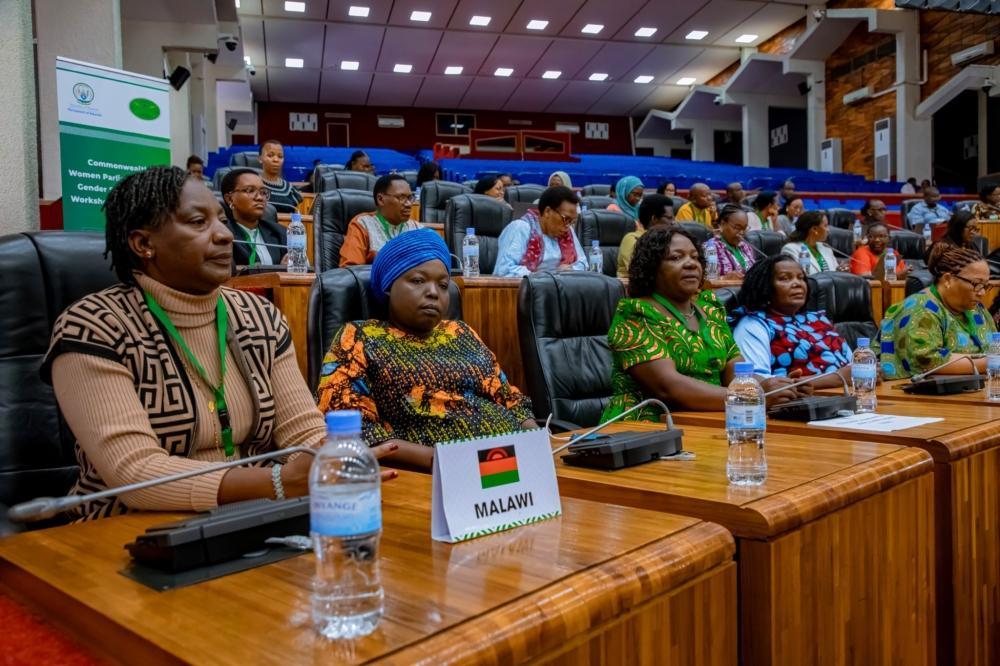Africa-Press – Rwanda. As artificial intelligence (AI) continues to gain global traction, lawmakers across Africa have raised both hopes and concerns over its integration into parliamentary processes, highlighting deep structural and operational challenges that could hinder its effective adoption.
Speaking during a session on “using emerging technologies: artificial intelligence to ensure effective parliaments in Africa” in Kigali, on May 21, members of the commonwealth women parliamentarians (CWP) forum called for a cautious but strategic approach toward the use of AI in governance.
“While AI presents incredible opportunities to make our parliaments more efficient and responsive, it also raises serious concerns especially when it comes to data availability and infrastructure,” said MP Alice Kornya Sandy from the parliament of Sierra Leone.
“In many African countries, access to reliable data remains a challenge. How can we expect AI to function effectively without trusted data inputs?” she asked.
Her concerns were echoed by MP Helen Pushie Manyeneng, the Deputy Speaker of the national assembly of Botswana, who warned that the use of AI will demand significant financial and technical investment.
“AI requires core infrastructure like GPUs, which many of our countries don’t have. More than that, it also opens doors to new forms of cybercrime. We must prepare wisely,” she said.
Despite these warnings, some lawmakers underscored the potential of AI to transform legislative work. MP Vanessa Umuhoza Gashumba emphasized that if properly managed, the benefits of AI could far outweigh its risks.
“When used responsibly, AI can reduce workload, streamline communication, and empower parliamentarians to make better decisions faster,” she noted.
It was also highlighted that many countries in Africa don’t even know where to start from.
“We understand that AI can improve the quality of parliamentary services,” said MP Nokuthula M. Dlamini from the Parliament of Eswatini, who added that “but most of our countries don’t even know where to start. We lack both the structures and the systems in place.”
Other lawmakers raised ethical and social concerns.
MP Dr Nomathemba Emily Mokgethi from Gauteng Provincial Legislature in South Africa called for caution, citing AI’s newness and unpredictability.
“Before we embrace it, we need clear policies on its use. AI might provide quick access to legal documents, but what if it leaks confidential information?”
Sen. Penine Uwimbabazi warned that over-reliance on AI could reduce human reasoning and critical thinking.
“People used to say, ‘If you want to hide something from an African, better put it in a book.’ Now it seems AI could make everything easy to find, but at what cost to accountability?”
Innocent Bagamba Muhizi, the CEO of the Rwanda Information Society Authority (RISA), provided insights into AI’s potential and practical applications.
“AI mimics human behavior using large datasets,” he explained. “It can cut down on the time clerks and MPs spend on analyzing bills, comparing previous versions, or understanding public opinion on certain laws.”
Muhizi said AI can translate parliamentary discussions into multiple local languages in real time, assist MPs with disabilities using voice tools, and help track policy implementation from the grassroots.
He acknowledged the concerns raised by MPs, saying: “AI systems are created by people and can carry inherent biases. We must be vigilant and ensure inclusive and ethical AI deployment.”
Responding to MP Sandy’s concerns on data, Muhizi emphasized that data is the lifeblood of AI systems and that data storage, access, and regulation must be treated with utmost seriousness.
“You could find a 20-year-old law in seconds if the data is well-managed. That’s the power of AI,” he said.
As for MP Dlamini’s worry about where countries should begin, Muhizi urged African leaders to champion digital transformation at the highest level.
“Include AI in national and parliamentary strategies, build institutional capacity, train staff, and ensure there’s someone accountable. All of this must be endorsed at cabinet level.”
Muhizi also praised Rwanda’s education system for preparing the next generation of AI experts through its competency-based curriculum. On the cost of AI-related hardware such as GPUs, he suggested a more affordable solution; using public cloud services.
“It’s scalable, cost-effective, and gives access to specialized computing resources without local investment,” he said.
However, MPs from SADC countries pointed out that in their nations, unlike Rwanda, there are no minimum education requirements for MPs, which makes even basic ICT use difficult in some cases.
“AI literacy starts with education,” Muhizi responded, “and Rwanda is laying the groundwork early thanks to a competence-based curriculum.”
For More News And Analysis About Rwanda Follow Africa-Press






